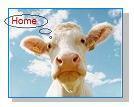|
Traditional Chinese Medicine (TCM) Q & A Part 2The Five Elements are Earth, Metal, Water, Wood, and Fire. Internal organs, meridians, specific Acupuncture points, and many diagnostic symptoms all correspond to one of the Five Elements. This allows for a detailed interpretation of natural phenomena. And thus we can recognise the Nature of the problem, and the natural pattern the problem stems from.
Whereas Western Medicine recognises a disease by name, TCM uses "dual diagnosis", recognising not only the features of the disease by name, but also by it’s nature and specific individual pattern. Here is one hint of how TCM can be used to complement and even enhance western medicine making the treatment more specific to the individual. For example, one person’s asthma may exhibit signs of a spleen damp pattern, being triggered by food with digestive disorder symptoms. And another person with asthma may exhibit signs of a kidney deficient pattern, and might be triggered by fatigue and overwork and present with a lot of lower back pain.
What are the differences between and benefits of Eastern and Western Medicine?
As mentioned above, TCM addresses the constitution of the individual and the "pattern of disharmony" occurring. Thus the underlying cause of the problem (wholisticaly) is identified and treated. One pattern of disharmony can relate to many symptomatic disturbances. For example "liver Qi stagnation" can relate to headaches, eye problems and mood disorders. In treating the pattern, fringe benefits are more often given than side-effects. I.e. treating a liver pattern headache can also benefit the eyes and calm the mind and emotions. So treating the "Nature" of the problem, we can address the whole person on many levels.
An advantage of Western medicine is that because it focuses objectively on the mechanism of the disease, a quick effect may be seen. E.g. Pain medication in acutely painful conditions. And so it has an important role in Acute care. Even though a quick effect may also be given with Acupuncture in many cases, it is often influenced by the severity and chronicity of the problem, as well as the individuals’ constitutional picture. So in general, the more severe the problem, the longer it’s been around, the more treatment it needs to be corrected. But there are always exceptions to the rule. Because TCM looks at the cause of the problem wholisticaly, it is often very good for Chronic care, and can improve the quality of life, in both a subjective and objective sense. For example acute and severe hemorrhage (blood loss) may lead to hypovolemic shock: western medicine is essential. For chronic blood in the stool with an absence of disease, or a subjective feeling of discomfort, TCM is very good. TCM has an advantage to be more specific to the person’s "bio-individuality" (as mentioned above). In my clinical experience with Acupuncture, this can enhance and complement the western medicine treatment, and even help the individual utilize the western medicine more effectively within the body, because we are "helping the body to help itself". Especially is some cases where the person’s body is slow to respond, or appears resistant to some medications. Please note, this is the authors own empirical observation, but alleviation of side effects of western medicine with acupuncture is widely observed and is another great strength of TCM. TCM Q & A Part [1.][2.][3.][4.] 
|




